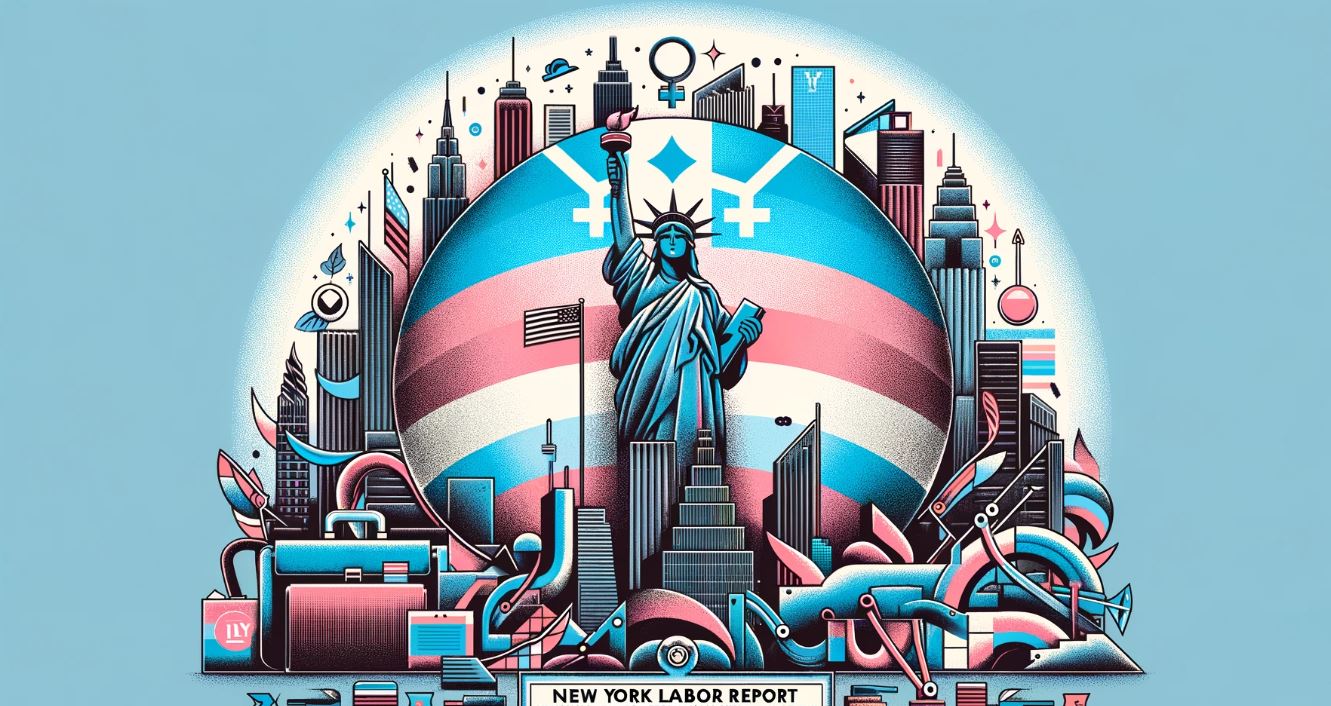TGNCNB Professional Challenges in New York
Groundbreaking Report Reveals Professional Challenges for TGNCNB New Yorkers
In New York, transgender, gender non-conforming, and non-binary (TGNCNB) individuals confront a daunting reality of prejudice and mistreatment in their professional lives, as unveiled by a groundbreaking report from the New York State Department of Labor. This extensive study, borne from a legislative directive passed in 2022, delves into the employment landscape for TGNCNB New Yorkers, merging data from diverse sources like the Census Bureau’s Household Pulse Survey and the Center for Disease Control and Prevention’s Behavioral Risk Factor Surveillance System (BRFSS), among others. Notably, the report highlights a disproportionate focus on cisgender participants in these studies, underscoring an imbalance in representation.
Harassment and Inadequate Employer Response in the Workplace
The findings paint a stark picture of the challenges faced by TGNCNB individuals in the workforce. Many report experiences of harassment, ranging from physical violence and sexual misconduct to invasive questioning and demeaning jokes. Particularly affected are those in public-facing roles, such as in the service industry, where such harassment is more prevalent. Additionally, the report reveals that employer response to these incidents is often inadequate.
Significant Employment Discrimination and Economic Disparities
The state’s Division of Human Rights has received over 1,200 complaints related to gender identity or expression in just the year up to October 2023, with a significant portion pertaining to employment discrimination. Economic disparities are also starkly evident; for instance, the BRFSS survey indicates that while 56% of cisgender individuals are employed or self-employed, this figure drops to 49% for trans individuals. Furthermore, the economic struggle is highlighted by the fact that 32% of trans New Yorkers live on a household income under $25,000, in contrast to just 13% of cisgender individuals.
Marginalization and Economic Hardship in TGNCNB Communities
The report also sheds light on the broader issues of marginalization and economic hardship faced by TGNCNB New Yorkers, as compared to their cisgender counterparts. For example, the employment rate among cisgender queer men and women is significantly higher than that of trans men, trans women, and GNCNB individuals. Education levels too differ markedly, with a third of trans New Yorkers not having graduated high school, a contrast to the 12% among cisgender New Yorkers.
Challenges in Legal Identification and Intersectional Discrimination
Legal identification alignment with gender identity remains a hurdle, with only a minority of TGNCNB individuals having been able to change their gender marker on their birth certificate. The qualitative aspect of the report further illuminates the intersection of racial and gender identity discrimination faced by TGNCNB people of color in job searches and workplace environments.
Proposed Solutions to Address TGNCNB Inequities
Accompanying the data, the report proposes several recommendations to improve conditions, including uniform data collection on gender identity, workforce development programs specifically for TGNCNB communities, and enhanced access to legal ID updates. The expansion of the Lorena Borjas Transgender Wellness and Equity Fund is also suggested to support transgender individuals across the state.
Advocacy Groups and Government Commitment to TGNCNB Equality
Elisa Crespo, executive director of New Pride Agenda, commends the expansion of the Lorena Borjas fund and underscores the report’s confirmation of widespread employment discrimination based on gender identity. She emphasizes New York’s relative progressiveness compared to other states, especially in providing opportunities for TGNCNB people.
Kiara St. James, co-founder of the New York Transgender Advocacy Group, highlights the critical role of data in advocating for the needs of marginalized communities, while Governor Kathy Hochul commits to using the report’s findings to tackle prevalent inequities in the state, reaffirming New York’s dedication to a discrimination-free workplace for all.














+ There are no comments
Add yours